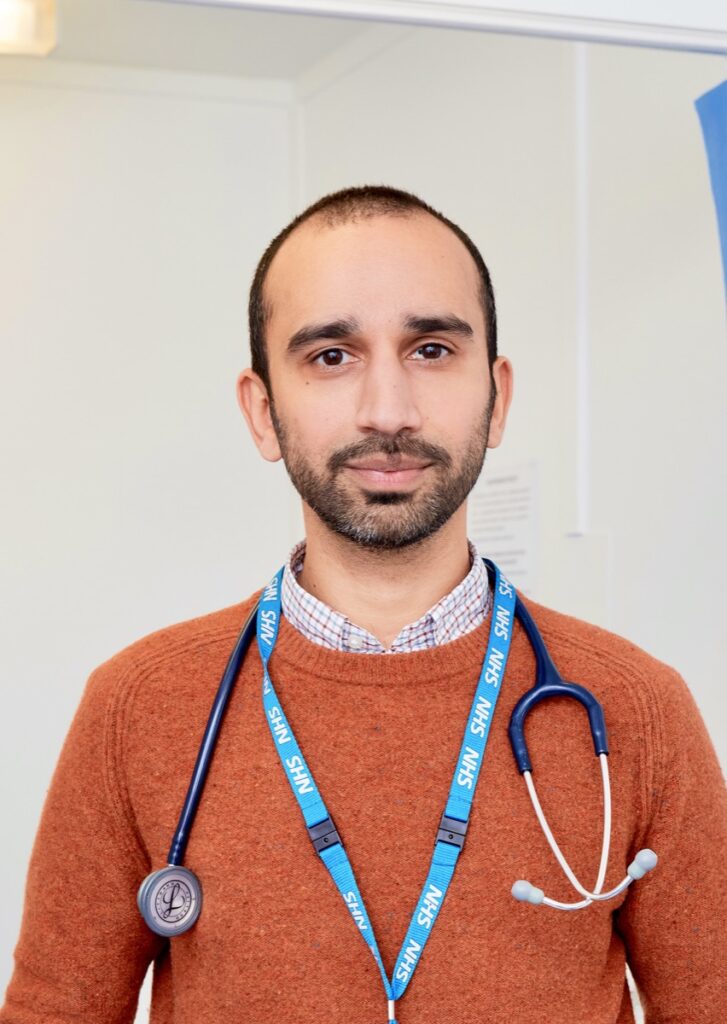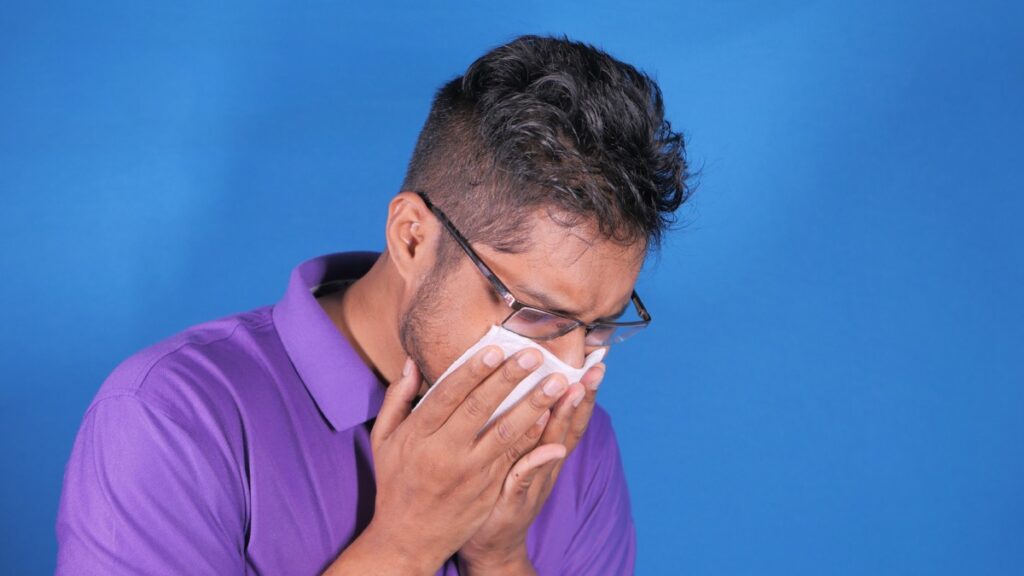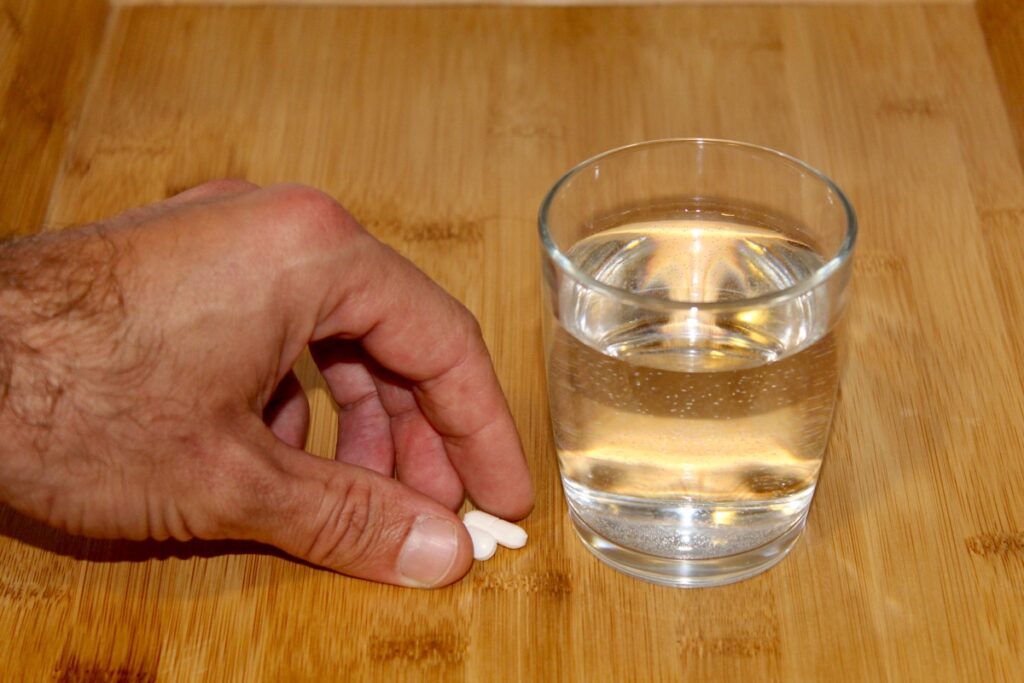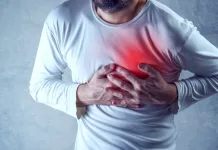“When you’re not feeling well, avoid going out to reduce the chance of spreading illness to others. Try to stay away from older family members and anyone with underlying health conditions,” says Dr Tehseen Khan.
Produced in partnership with the NHS

It’s winter, so we’re piling on the extra layers when we venture outdoors. But the rising cost of living means even when we’re indoors, we’re thinking about ways to save on our energy bills. It’s also the predictable season of coughs, colds and sore throats – so what can we do?
Prevention is better than cure

We all know COVID-19 is still with us, flu is back with full force this winter and Respiratory Syncytial Virus (RSV) is also circulating. Having any of these viruses can be unpleasant and dangerous, especially for people with certain health conditions. If we catch these illnesses at the same time, there is an even higher chance of becoming seriously ill or going into hospital.
Dr Tehseen Khan, a GP in London explains vaccinations give the best protection against viruses: “COVID-19 vaccines have saved countless lives, helped thousands of people stay out of hospital, and made it safer for us to live with the virus. If you or your loved ones haven’t yet had all of the doses you need, it’s not too late to get protected.”
Seasonal COVID-19 and flu vaccines are also available to everyone aged 50 and over, pregnant women, care home residents, people with certain health conditions and frontline health and care staff.
Flu vaccines are also offered to children aged two and three years old, in primary school and in secondary school years 7, 8 and 9. He adds: “If you have been invited for your vaccine, I would encourage you to have it as soon as possible. Patients often ask me why they need further vaccinations, especially if they have had the COVID-19 virus. This is because, as well as protecting us from newer variants, our immunity reduces over time, so we invite those at greater risk to top it up. The flu vaccine is needed every year as viruses that cause flu can change each winter.
“I also get asked about whether they contain pork or beef gelatine. The COVID-19 vaccine doesn’t contain any animal products, flu jabs do not contain gelatine, and egg-free versions are available too. The children’s flu nasal spray contains gelatine derived from pork, so if this is an issue for your child, please talk to your religious leader for guidance, or ask your GP practice about the risk and benefits of having the vaccine jab (without gelatine) instead of the nasal spray.”
All NHS vaccines are safe and effective and have been extensively tested on thousands of people from different communities. You can book your COVID-19 by scanning the QR code below, or book your COVID-19 or flu vaccine by calling 119 for free or online at www.nhs.uk/wintervaccinations

Tips if you’re under the weather




- Get enough rest and sleep to help your body to recover
- Drink plenty of water and warm liquids to stay hydrated
- Stay warm with blankets, hot water bottles and wrap up in extra layers if you need to
- Paracetamol or ibuprofen can help with any aches and pains and lower your temperature.
Dr Khan advises, “Remember hands, face, space, isolate and ventilate. That means using alcohol hand gel and washing your hands regularly. Avoid going out to reduce the chance of spreading it to others, or if you must go out, wear a mask. Try to stay away from older family members and anyone with underlying health conditions – they are more vulnerable and at greater risk of complications. Once you’re feeling well, if you decide to see friends and family, open a window so viruses don’t circulate and spread to others.”
Older neighbours, family and friends may need extra support with collecting their prescription medicine, doing their food shopping or may feel lonely and just want someone to have a friendly chat with.
Take care of your mental wellbeing

As the weather is still dark, some people have a form of depression called seasonal affective disorder which can affect their mood and energy levels during the winter months. If you feel your everyday life is affected by the seasons, you should contact your GP practice for support and advice.
Did you decide to take up a new activity or hobby at the start of the year or commit to a healthier eating regime? Don’t worry too much if you don’t keep your New Year resolution – it’s important to be kind to yourself and do whatever you can.
Fresh air, natural daylight and regular exercise are known to lift our mood, even as a way to break up our day. A brisk walk in the crisp air gets our bodies moving, blood pumping and heart rates up. But if going outside isn’t an option, you can try another form of exercise that works for you. If you spend a lot of time indoors or cover up when outdoors, you may be at risk of a Vitamin D deficiency. Your pharmacist can advise you about supplements to boost your levels during the winter.
Dr Khan adds, “Please ask a pharmacist or healthcare professional for advice and support when you need it, that’s what we’re here for.”
Where to go for help
There are many NHS services that can give you help and advice when you’re not feeling well:
- a local pharmacy for advice about minor ailments, symptoms or existing prescriptions
- a local GP surgery for advice and treatment of a range of existing and general health issues delivered by a variety of healthcare professionals
- an urgent treatment centre for help with cuts, sprains, strains and minor burns
- 999 or a local accident and emergency (A&E) department for serious or life-threatening conditions
- Visit 111.nhs.uk or call 111 if you have an urgent medical problem and you’re not sure what to do
The NHS app for your phone or tablet allows you to get a COVID pass for travel, and access to your health records and to reorder existing prescriptions.
Getting help from the right service ensures you’re seen quicker by a skilled professional who can help manage any health concerns and get treatment that works for you.
Where possible, you should speak with your GP practice about any ongoing health concerns. Everyone is entitled to register with a GP practice free of charge, even if you don’t have proof of address or immigration status, ID or an NHS number. If you’re in a different area to where you normally live or aren’t registered to a practice, you can contact any GP practice that is local to you.















